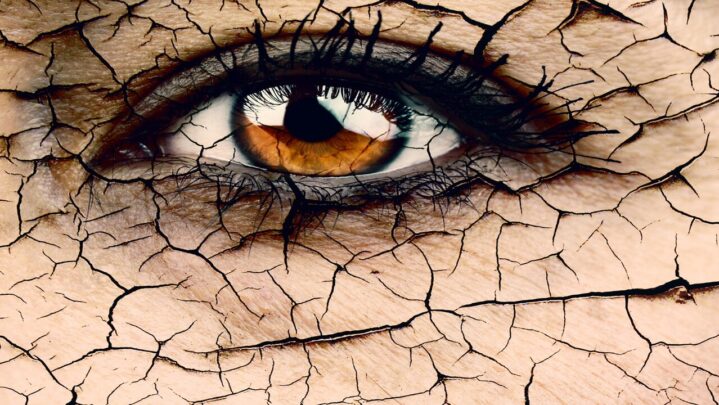Almost everyone has experienced dryness in their eyes at some point in their lives. Acute exacerbations are prevalent, with various lifestyle choices and environmental factors provoking symptoms, such as using a telephone or being in a low-humidity environment.
While occasional occurrences of dry eye may not be painful, persistent dry eye, often known as dry eye syndrome, is a different issue.
Dry Eye Causes and Risk Factors
A dry eye is a condition in which the tear ducts do not produce enough tears or tears evaporate too quickly, resulting in insufficient eye lubrication.
Tears (a mixture of water, oils, and mucus) are essential for maintaining eye health and vision clarity. When you blink, a coating of tears covers your eyes, protecting them from infections, keeping them moist, and washing away dust and dirt.
Some of the risk factors for dry eye are as follows:
• Irritating environmental factors such as wind, low humidity, air conditioning, sunlight, smoke, chemical odors, or heat.
• Hormonal changes in women, such as those caused by pregnancy, menopause, HRT, or birth control medications.
• Disorders of the eye glands or skin diseases in or around the eyes.
• Allergic reactions
• Refractive surgery (LASIK) and cataract surgery are examples of eye surgery.
• Sjögren’s disease, lupus, and rheumatoid arthritis are examples of autoimmune disorders.
• Infrequent blinking or a condition is known as exposure keratitis, which occurs when the eyelids do not close completely during sleep.
• Antihistamines, nasal decongestants, tranquilizers, blood pressure medication, Parkinson’s disease medication, and antidepressants, among other medications.
• Vitamin consumption that is either excessive or insufficient.
• Wearing contact lenses for an extended period of time.
The best way to treat dry eye is to figure out what’s causing it in the first place. It may be beneficial to avoid:
• smoking and secondhand smoke in general.
• arid environments, such as deserts and airplanes.
• blowing hair dryers or fans in your face
• Using eye drops can provide further relief.
• making use of a humidifier
• taking a break from your computer or book to rest your eyes
• Blocking the wind with glasses or eye protection.
• using contact lenses designed for persons who suffer from dry eyes.
• depending on the source of the dryness, using pharmaceutical drugs
Omega-3 fatty acid supplements may also help relieve dry eye problems, according to 2019 research. Furthermore, a study published in 2020 discovered that artificial tears combining trehalose (a sugar) and flaxseed oil may be useful in treating dry eyes. This treatment requires more research.
Talk to your doctor about switching to a different medicine if one is causing your eyes to dry up. It may also aid in the treatment of other underlying health issues that are contributing to the dryness.
In rare situations, having plugs inserted in your tear ducts to keep your tears around your eyes may be beneficial. This may be discussed with your doctor as a temporary or permanent operation.
Keep reading successyeti.com
Also Read: Ways To Prevent Getting Stuck In An Emotion





